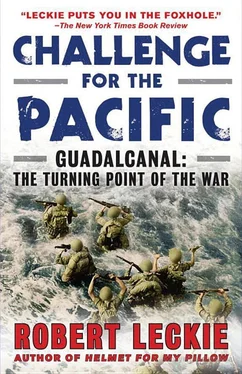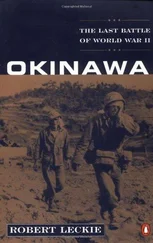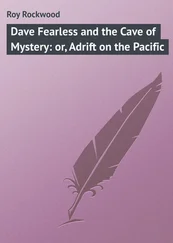One hundred miles to the south, Admiral Fletcher’s aircraft carriers were turning slowly into the wind. Dauntlesses, Avengers, and Wildcats—the great warbirds of the American Navy—all were out on flight decks. No more the Devastator or Vindicator or Buffalo. The Japanese had annihilated them, seen to it that they were scrapped, and had inadvertently done a great favor for the young men smoking and drinking coffee in the pilots’ ready rooms.
Outside, the motors were started. Props swung, caught and spun briefly, stopped and caught again, while the engines coughed blue smoke. Engines cleared and began idling. Blue halos encircled the cowlings. Each of the carriers —Wasp, Saratoga , and Enterprise— might have been marked from the air by those bright blue rings on their decks. But there was no enemy in the sky above them. One hour before sunrise, the great ships began launching.
Up at Iron Bottom Bay it was getting daylight and the ships were at their stations. The Japanese were still sleeping. They did not awake until, at 6:13 A.M., the first shells from the cruiser Quincy’ s turrets hurled America’s reply to the nation which had contrived Pearl Harbor.
Aboard the ships, Marines were coming up on deck, their bellies full of Navy beans and their eyes blinking in the unaccustomed sunlight.
“F Company stand by to disembark! First platoon stand by to disembark!”
“All right, you men—down them cargo nets.” 6
They went over the side. Bandoliers slung crisscross over their breasts, cartridge belts bulging with bullets, carrying machine-gun and mortar parts weighing up to fifty pounds or loaded down with automatic rifles, with helmets bumping over their eyes and the muzzles of slung rifles digging into their necks or pistols flapping at their hips, heavy and awkward with the habiliments of war, they went clambering down the cargo nets. They clung to the coarse ropes with desperately clutching hands while the movement of the ships banged them mercilessly against steel hulls. They waited like patient armored ants while man after man let go and jumped into the Higgins boats wallowing below, until, at last, they were all embarked, bayonets were fixed, heads were ducked below the gunwales, and the boats taxied slowly toward the landing circles.
And now the iron voices of the bombardment ships were bellowing, now the six- and eight-inch muzzles spouted orange, now great gobbets and gouts of flame and splintering debris shot into the air from the shores of both Guadalcanal and Tulagi, and now columns of black smoke rose into the air while the Dauntlesses dove and dove relentlessly and the Avengers skimmed in low.
High up at Vungano, Sergeant Major Vouza saw it all and hastened downtrail to tell his master.
Below him at Matanga, Martin Clemens was on his feet shouting in exultant joy. He had bounded from his bedroll at the first crash of Quincy’ s guns, instinctively aware of its meaning, tired no longer, and crowing: “Calloo, callay, oh what a day!” 7Vouza found the District Officer crouched gleefully beside a radio crackling with the voices of American pilots spotting targets for the gunfire ships, of others shouting to one another or begging their ships for new missions. One after another the scouts came down from Matanga. Grinning broadly, they related how favorite targets, ones that they had scouted for Clemens and his radio, had gone up in flames and smoke.
Out on the Bay the landing boats were fanning out into assault waves. Power was poured to the motors. Sterns dug deep into the waves. Hulls down, white wakes creaming out behind them, the Marines sped north and south toward palm-fringed shores.
Six hundred miles to the northwest, Vice-Admiral Gunichi Mikawa read a message from Guadalcanal, “Encountered American landing forces and are retreating into the jungle”; and one from Tulagi, “The enemy force is overwhelming. We will defend our positions to the death, praying for everlasting victory.” 8Reacting swiftly, Admiral Mikawa began collecting ships and men for a counterstroke.
Even as the Americans entered the Solomons, the Japanese began preparing to throw them out again.
PART TWO

Alone
IT WAS at Tulagi that the American counteroffensive began.
Minutes after Tulagi radioed its last defiant message, shells from cruiser San Juan smashed the radio shack. Tulagi was never heard from again.
Out in the harbor men of the Yokohama Air Group frantically sought to save eight blazing Kawanishi flying boats caught on the surface like sitting ducks. A ninth, piloted by Lieutenant Commander Yoshio Tashiro, roared over the water and tried to flounder aloft, only to be tumbled back in flames by San Juan’ s guns. Commander Tashiro and his roaring tiger belt-buckle—triplet to the one worn by his brother-in-law Lieutenant Junichi Sasai—sank to the bottom of Iron Bottom Bay.
Off Tulagi’s southern coast the men of the First Raider Battalion were debarking from destroyer-transports which had brought them from New Caledonia. Lieutenant Colonel Edson watched them going. Short, wiry, pale, and icy-eyed, his eyebrows mere wisps of that carroty red hair which had earned him the nickname of “Red Mike,” Edson stood with his hands on the butt of the big six-shooter he wore, Western style, smiling his cold smile while making sure that the men were stripped down for battle.
“Don’t worry about the food,” he told a company commander fretting about the absence of rations. “There’s plenty there. Japs eat, too. All you have to do is get it.” 1
Edson was not leading the attack personally. Lieutenant Colonel Sam Griffith would do that. Griffith was another hard professional, but with an intellectual side. He was a Chinese scholar, a Marine who could write as well as fight. Shortly before eight o’clock, with the British Residency and other buildings on the southeastern tip enshrouded in smoke, Griffith and the Raiders sped for the northwestern end of the little, boot-shaped island. At eight o’clock their Higgins boats grated to a halt on coral shoals and assault riflemen leaped into the surf.
They sank into waist-deep water. Many of them floundered beneath heavy loads and went under. Others slipped on slimy coral underfooting and also sank. Yanked to their feet by their buddies, they struggled shoreward. They emerged with blood streaming from hands and knees torn by cruel coral. Fortunately, no enemy fire spat from the jungle and they plunged into its murk. At 8:15 A.M. Griffith signaled:
“Landing successful, no opposition.”
Now the Raiders moved swiftly. They were two thirds up the island. They scaled a steep grim cliff to their front and wheeled right. They drove southeastward along the cliff’s spine and sloping sides. Behind them, the Second Battalion, Fifth Marines, under Lieutenant Colonel Harold Rosecrans crossed the same landing beaches and swung left. Rosecrans’s men were to clear the northwestern third. They struck out quickly and found the territory undefended. They turned again and moved in behind Griffith in support.
Throughout the morning the Raiders moved over rough, jumbled ground, working through rocks and trees, keeping clear of shore trails covered by enemy cliffs. At noon they spilled into the former Chinese settlement on the island’s north coast, and there the Japanese struck back.
Mortar shells began to fall. Marines toppled. Lieutenant (j.g.) Samuel Miles, a physician, rushed to help three badly wounded men and fell dead, the first casualty of the campaign. A company commander was wounded. The Marines moved more warily against these rickety Chinese shacks and the tempo of their advance slowed. Late in the afternoon, Edson, who had come ashore, called a halt.
Читать дальше













